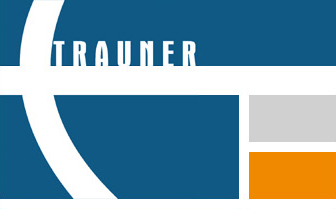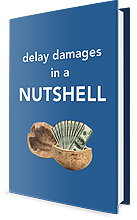Update on How Different State DOTs Approach the Compensation of Home Office Overhead
In 2003, the National Cooperative Highway Research Program published the results of a synthesis study we conducted entitled, “Compensation for Contractors’ Home Office Overhead.” The complete synthesis study can be downloaded at this link. The study summarized State DOT’s practices regarding compensation for home office overhead.
In the synthesis study, each state’s practices were grouped as the Avoidance, Compliance, or Proactive Model. Of the twenty-six states that responded to our questionnaire:
- Five states reported that they never paid for home office overhead (Avoidance Model)
- Thirteen of the states paid for home office overhead based primarily on court and board precedent (Compliance Model).
- Eight of the states responded that they address payment of home office overhead in their standard specifications (Proactive Model)
In the Synthesis Study’s concluding remarks, we stated:
“Over the next few years, it might also be worthwhile to structure a study of the Florida, Ohio, and California approaches to evaluate whether any have succeeded in achieving the objectives for owners and contractors as discussed in this synthesis.”
Recently, AASHTO’s Subcommittee on Construction, Contract Administration Section, followed up with these states to get a sense of the effectiveness of their procedures, whether there were any updates to them, and where these procedures could be found. Here is a brief summary of each state’s responses as outlined in AASHTO’s document.
Ohio Department of Transportation (ODOT)
AASHTO’s follow-up states that ODOT “developed a procedure that may be applied simply without an audit, and without debating and negotiating allowable overhead cost on each contract.” They feel this approach works well for them.
The details can be found in their current standard specification: Section 109.05.D.2.f
Florida Department of Transportation (FDOT)
AASHTO’s follow-up explains that FDOT’s approach to home office overhead is similar to ODOT’s as they apply a simple formula to calculating overhead. It states:
“After several years of use and discussions with the contracting industry, in 2007, FDOT moved the payment provision from section 5-12 to section 4-3 of the standard specifications which is payment of allowable costs for extra work. As part of this change, FDOT changed its allowable markups for labor, equipment, and materials from 25%, 7.5%, and 17.5%, respectively to a flat 17.5%. Additionally, FDOT gives the contractor the choice regarding added work of applying the 8% markup applied to the time associated with the added work or the choice of adding the 17.5% to the labor, equipment, and materials. The rationale behind this change is that there are sometimes small labor/equipment/materials changes that add significant time to a project so the contractor would benefit more from the overhead rate. Other changes might be high cost but might result in relatively small time changes, so in these cases, the contractor might opt for the 17.5% markup on the labor/equipment/materials.”
According to AASHTO follow-up report, the construction staff at FDOT believes their specification has eliminated many potential arguments related to delay claims. You can find the specification within their current standard specification: Sections 5-12.6.2.1 and 4-3.2.1(d).
California Department of Transportation (CALTRANS)
CALTRANS developed a “time related overhead” (TRO) bid item for daily field and home office overhead costs. They have implemented this approach on projects greater than $5M since August 2000. According to the AASHTO follow-up report, CALTRANS found by using TRO they reduced the number of claims for additional overhead compensation, paid less overhead compensation, and their resident engineers spent less time determining compensation for time-related impact and overhead claims.
As reported by CALTRANS to the AASHTO subcommittee, documents related to CALTRAN’s TRO system can be found here:
If you would like a copy of AASHTO’s follow-up to our research, please contact Scott Lowe at scott.lowe@traunerconsulting.com.

